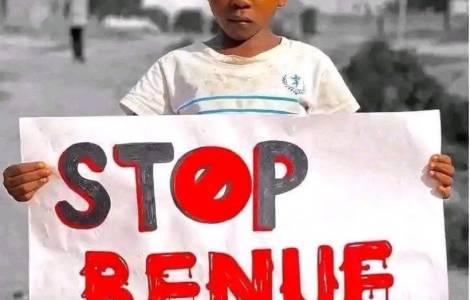
On June 13, 2025, the communities of Yelewata and Daudu in Guma Local Government Area (LGA) of Benue State experienced a devastating massacre. Before the attack, residents of these communities had received advanced warnings. Yet, in a coordinated manner, the attackers struck late Friday, attacking the communities from eastern and western flanks. The massacre, which went on for two days, led to the death of over 200 individuals. Although there have not been any official statements from the police or military, eyewitness accounts and the governor of Benue State, Hyacinth Alia, stated that armed cattle herders carried out the coordinated strikes.
Benue State and the broader North Central zone have long grappled with persistent farmer-herder conflicts. These clashes are largely driven by competition over land and water resources, deepening socioeconomic inequalities, and shifting climate patterns (Akosu and Edward, 2024). Yet the coordination and surge in recent killings raise serious concerns and questions. Prior to 2011, clashes and killings were relatively uncommon and less severe.
However, since 2011, both the intensity and frequency of these conflicts have escalated, resulting in a significant rise in fatalities (Odomene, 2025). The trend as illustrated by data from the Nextier Violent Conflict Database shows that in the first half of 2024, 14 reported incidents resulted in 48 fatalities. By contrast, the same period in 2025 recorded 28 incidents and 508 deaths, a more than than tenfold increase in casualties.
These incidents, with their sophistication and coordination coordinated, suggest that the violence is morphing into an issue potentially much more than the well-known agrarian clashes. This shift raises urgent questions, not just about motives and perpetrators, but about the capacity and posture of security provisioning in the state. The Yelewata massacre follows closely on the heels of other deadly incidents, including the killing of 42 people in Gwer West and 25 in Makurdi, all within a matter of weeks.
Despite the well-known volatility of these areas, the attacks occurred without any pre-emptive intervention by security forces. Contrary to suggestions of a reduced security presence in Benue, what persists is a dysfunctional and reactive security posture. The visit of the Inspector General of Police and the Chief of Defence Staff to the state, only after these killings, underscores a pattern of response that is tragically too little, too late. While President Bola Ahmed Tinubu is also expected to visit tomorrow, Wednesday, June 18, 2025, the symbolism of these high-profile visits is undermined by the reality that it took the preventable loss of 200 lives to elicit them.
The nature of the violence further raises questions about the multiplicity of actors and motivations of the perpetrators. Governor Alia’s allegation that some of the attackers do not speak any Nigerian language and do not look like Nigerians suggests the presence of foreign actors, a possibility that has long circulated in local discourse but remains under-investigated by security agencies.
Furthermore, the style of the attacks mirrors a well-orchestrated guerrilla tactics and displays elements of terrorism. While historically, farmer-herder clashes have featured small arms and machetes, recent assaults indicate a shift to better-coordinated, more lethal operations. This tactical evolution suggests that the conflict have moved into a new phase, one that state security institutions seem ill-prepared to confront.
A relevant perspective on the Benue State violent conflicts ecosystem is that of religion and to what extent it continues to play a role in the ongoing violence in the state. Religion is a vital part of Nigerian society, and the killings that have occurred in Benue state have mainly been between farmers, who are mainly Christian, and herders, who are predominantly Muslim. This dynamic provides some element of religious leanings to the conflict. A study on religion as a transformative agent in farmer-herder conflicts in Nigeria found that herders feel marginalised by host communities based on their religion, while host communities, comprising mostly farmers, do not trust herders due to their religion (Adichie, 2021). Due to this perceived rift on both sides, ensuing violence is often attributed to religious differences, regardless of the multiplicity of causation.
Government responses to the killings have been few and far between. The military deployed air surveillance around the conflict zones to monitor the situation and tackle the crisis in the state. President Ahmed Tinubu also deployed security teams and requested that the governor set up reconciliation meetings and dialogues to ensure that the incessant killings come to an end.
At the civil level, there have also been multiple interventions in Benue to reduce the endless killings. In 2022, traditional leaders in Benue State underwent mediation training on resolving the crisis in the state. International organisations such as the United Nations Human Rights Council have also carried out peace-building programmes such as the integrated approach to building peace in Nigeria’s farmers-herdsmen crisis. Nonetheless, these attacks have persisted, raising concerns about the efficacy of government responses and the interventions carried out. Thus, there is an urgent need for an independent assessment of which interventions are working and which are not. There must be a proper examination of why some interventions have not yielded the much-needed results. The government and local and international non-government organisations will need to conduct adequate baseline assessments.
The Nigerian government must urgently transition from reactive to preventive security measures. This requires embedding permanent intelligence-gathering and rapid response units in high-risk LGAs, strengthening the chain of command, and ensuring seamless coordination between federal and state security structures. Crucially, there must be credible and independent investigations into allegations of foreign mercenaries and the unchecked proliferation of military-grade weapons. These investigations are essential to understanding the nature of the threat and determining the strategic capabilities required to neutralise it.
Accountability must become non-negotiable. Repeated massacres have gone unpunished, and the absence of justice continues to embolden perpetrators. To break this cycle of impunity, the government must establish special investigative panels with robust civil society oversight, ensuring transparency, impartiality, and enforcement of findings.
Additionally, the Benue conflict can no longer be approached through narrow or outdated frameworks. It demands a comprehensive, multi-sectoral response, one that integrates climate adaptation, community reconciliation, pastoralist reform, arms control, border security, and interfaith peacebuilding. These interventions must be rooted in context-specific, locally informed analysis, capable of addressing the deep-seated structural drivers of violence in the region.
The Yelewata and Daudu massacres represent a new and dangerous frontier in the Benue crisis. Framing it as a ‘farmer-herder’ conflict no longer captures the complexity, coordination, or intensity of the violence. Without a fundamental shift in how the state interprets, anticipates, and responds to this crisis, more lives will be lost and high-level visits after mass killings will remain a bitter ritual of state failure.
To ensure that these massacres are contained, the government must improve its response to the attacks. Many of these mass killings have occurred due to an inadequate and uncoordinated response. This may involve deploying more security forces on the ground, especially where these attacks are likely to occur. The chain of command must be strengthened to ensure a swift response when necessary. Also, there must be a thorough and sufficient investigation into these mass killings.
The government must ensure that the perpetrators are caught and punished accordingly. The government must collaborate with various stakeholders and investigate allegations of foreign actors being involved. Strengthening intelligence gathering will be crucial in tackling this protracted crisis in Benue State.
The government and various stakeholders must investigate and examine which interventions are working and which are not. There must be a proper examination of why some interventions have not yielded the much-needed results. The government and local and international non-government organisations will need to conduct adequate baseline assessments.
Third parties must make a significant investment in independent evaluation. This will help measure results against changing realities on the ground. The farmer-herder conflicts in Benue, which have over time led to the death of many, raise major concerns and questions. The ongoing conflict brings to light some underlying issues that have been lingering. The Yelewata and Daudu massacre indicates that the conflict in Benue may be beyond just a mere farmer-herder conflict and may have become more complex. There is a need for the government to address these concerns and questions around the crisis in Benue State.
While the federal government has taken some steps — such as deploying surveillance and encouraging reconciliation meetings, these measures have been largely symbolic and short-term. Previous interventions, including mediation training for traditional leaders and peacebuilding programmes by the United Nations, have failed to stem the tide of violence. This persistence of attacks reveals a disconnect between intervention frameworks and ground realities.
There is an urgent need for the government to undertake a brutally honest assessment: what interventions have worked, and why have others failed? This must include a robust baseline analysis of the conflict drivers, actors, and weapons proliferation, as well as independent evaluations of past peacebuilding efforts.
Recommendations Moving Forward
First, the Nigerian government must transition from reactive to preventive security measures. This includes embedding permanent intelligence and rapid response units in volatile LGAs, improving the chain of command, and enhancing coordination across federal and state security outfits. Second, there must be credible investigations into the allegations of foreign mercenaries and the proliferation of military-grade weapons. This is critical to understanding who the state is up against and what capabilities are required to dismantle them.
Accountability must become non-negotiable. Investigations into past massacres have rarely led to prosecutions. This impunity only emboldens further violence. The government must establish special investigative panels with civil society oversight to ensure transparency and follow-through.
Finally, the Benue conflict can no longer be addressed through narrow frames. It demands a multi-sectoral approach, one that considers climate adaptation, community reconciliation, pastoralist reform, arms control, border security, and religious peacebuilding, all informed by granular local knowledge.
The Yelewata and Daudu massacres represent a new and dangerous frontier in the Benue crisis. Framing it as a “farmer-herder” conflict no longer captures the complexity, coordination, or intensity of the violence. Without a fundamental shift in how the state interprets, anticipates, and responds to this crisis, more lives will be lost — and high-level visits after mass killings will remain a bitter ritual of state failure.
















